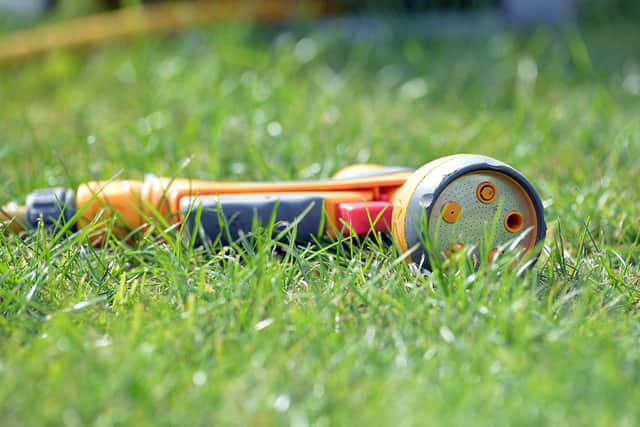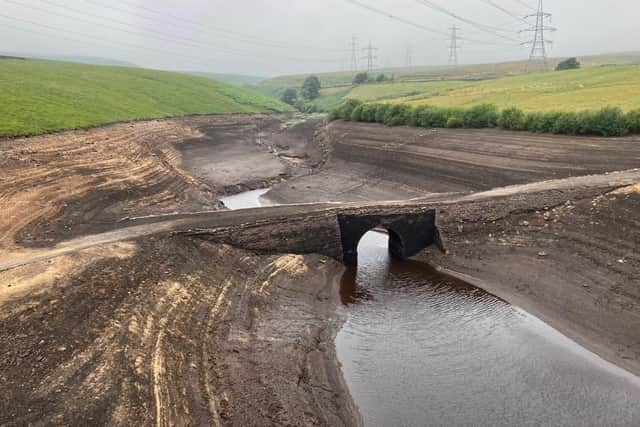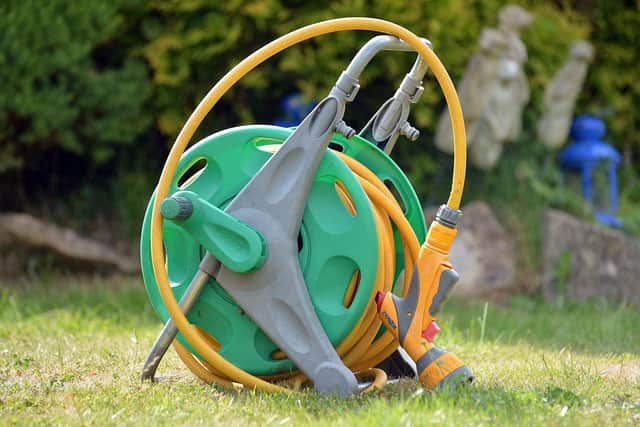Yorkshire Water announces first hosepipe ban for more than 27 years – with fines of up to £1,000
and live on Freeview channel 276
The decision was made after parts of Yorkshire reported the lowest rainfall since company records began more than 130 years ago, with the ban set to come into effect from August 26 – with no end date announced.
Households in Scarborough will be banned from using a hosepipe to water gardens and plants, clean cars or boats, fill paddling pools or clean patios.
Advertisement
Hide AdAdvertisement
Hide AdNeil Dewis, Yorkshire Water’s Direct of Water, said: “We’ve been doing everything we can to avoid putting in restrictions but unfortunately, they’re now necessary as part of our drought planning.


“We’re grateful to our customers, who have been saving water where they can this summer. It is really important that we all continue to do so, to help protect our water resources and the environment.”
Anyone found to have breached the hosepipe ban could receive a fine of up to £1,000.
Mr Dewis said the hot and dry weather means that Yorkshire’s rivers are running low and the county’s reservoirs are around 20 per cent lower than expected for this time of year.
Advertisement
Hide AdAdvertisement
Hide Ad“We’ve now reached that trigger point,” he said. “We need to make sure that we have enough supply for the essential needs of people across the region this year and next, as well as making sure we’re able to protect our local environment by limiting the amount of water we have to draw from the rivers.


“Our decision to introduce a hosepipe ban is based on the risk that water stocks continue to fall in the coming weeks and the need to be cautious about clean water supplies and long-term river health.”
Introducing the ban allows Yorkshire Water to apply for drought permits from the Environment Agency, which allows it to take more water from rivers. Residents can continue to use tap water from a bucket or watering can and businesses can use hosepipes for commercial reasons.
Environment Secretary George Eustice met with water company CEOs on Wednesday and urged them to take “precautionary steps” to protect essential water supplies.
Advertisement
Hide AdAdvertisement
Hide AdIt follows an extended period of dry weather and extreme heat, with large swathes of the country under Met Office weather warnings. The National Drought Group is expected to meet on Friday to discuss the protracted hot temperatures.


The North York Moors National Park has implemented bans on visitors using disposable barbecues and has warned people to be vigilant when disposing of cigarettes and glass bottles.
Bernie McLinden, a Senior Ranger, said: “While the term ‘wildfire’ might lead people to think that these events are natural disasters, it’s the actions of people which pose by far the greatest risks.
“Prolonged hot and dry weather creates the right environment for fire to spread quickly and out of control, but the initial spark is nearly always due to human behaviour.
“A wildfire in the National Park would be a disaster for our very special moorland and woodland habitats."